Genera+ion: Season 1 (Part 1) – Review/ Summary (with Spoilers)
Genera+ion might represent the next generation of youth dramas which contain a whole new slew of problems, but they all boil down to the same you’re used to.
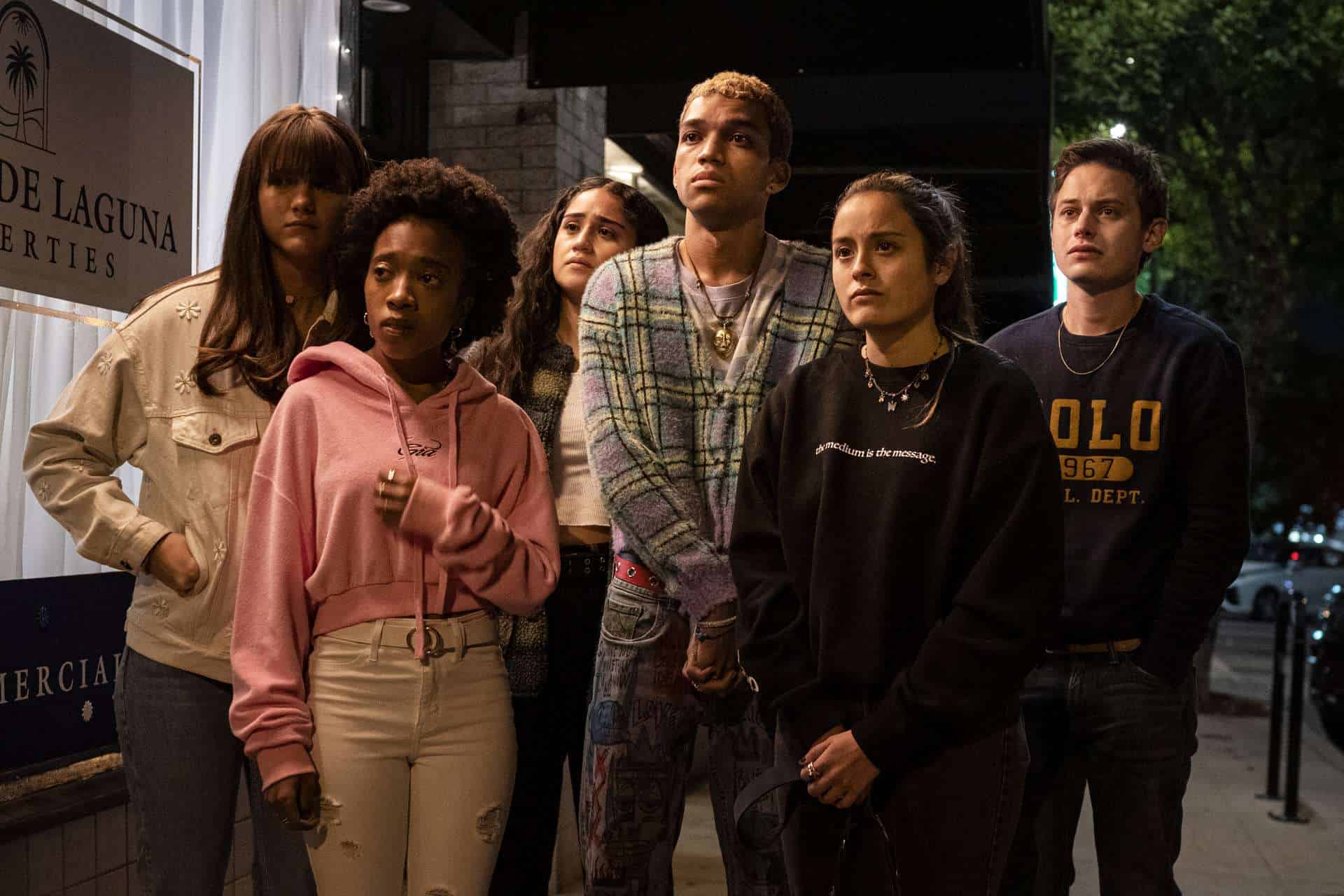
Spoiler Alert: This summary and review contains spoilers.
Additionally, some images and text may include affiliate links, meaning we may earn a commission or receive products if you make a purchase.
Genera+ion might represent the next generation of youth dramas which contain a whole new slew of problems, but they all boil down to the same you’re used to.
| Season Premiere | 3/11/2021 |
| Season Finale | 4/1/2021 |
| Episodes | 8 |
| Network | HBO Max |
| Created By | Zelda Barnz, Daniel Barnz |
| Genre(s) | Comedy, Drama, Romance, Young Adult, LGBT |
| Noted Cast | |
| Chester | Justice Smith |
| Greta | Haley Sanchez |
| Riley | Chase Sui Wonders |
| Ana | Nava Mau |
| Nathan | Uly Schlesinger |
| Naomi | Chloe East |
| Megan | Martha Plimpton |
| Delilah | Lukita Maxwell |
| Sam | Nathan Stewart-Jarrett |
| Arianna | Nathanya Alexander |
| J | Sydney Mae Diaz |
This content contains pertinent spoilers.
Season Summary
Off in Orange County, California, we follow a group of teens as they deal with first loves, forbidden romances, and owning who they are, for better or worse.
Review
Chester, Greta, and Riley
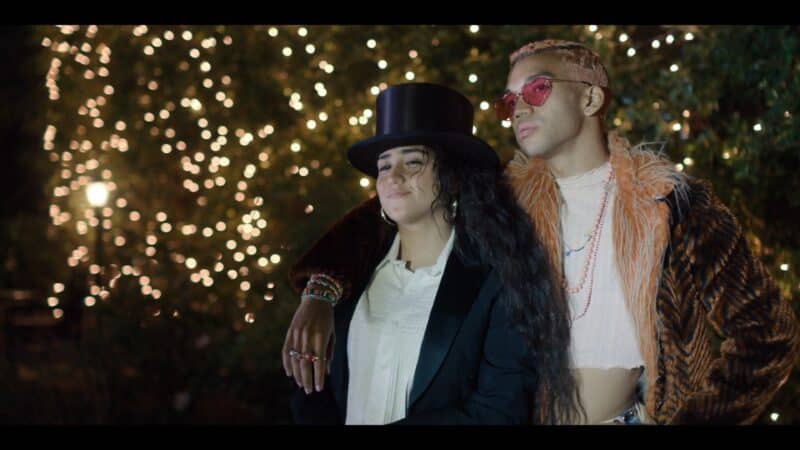
Three characters make Genera+ion worth watching. The first is Chester, who is flamboyant, very much gay, and one of the show’s most clever and witty characters. Combine that with Chester being a jock and having an insane GPA, and it makes him not easily fit into any stereotype you may think of. Yet, Genera+ion pushes beyond the sassy gay trope by diving into Chester’s loneliness, his need for belonging, and through his guidance counselor Sam, the potential to have something real with another man besides empty sex.
Then, switching to Riley, who is almost like a female version of Chester, she too hasn’t had a real relationship previously, and there appears to be more to her than part 1 had time to reveal. Yet, as a photographer, she always has an eye out for moments and people, and sees Greta, who becomes a love interest.
Now, when it comes to Greta, you get this wonderfully innocent lesbian girl who produces so much you want to invest in. Her home life includes living with her aunt, Ana, while dealing with her mother, who had to leave the country. Pair that with her being active in her community and having an intense crush on Riley, who not only sees her but has intimate moments with her — that is what will keep you around for all eight of the episodes. Even with the inclusion of other characters in the ensemble who can be seen as blemishes.
Nathan and Naomi Being Lead Roles In The Ensemble
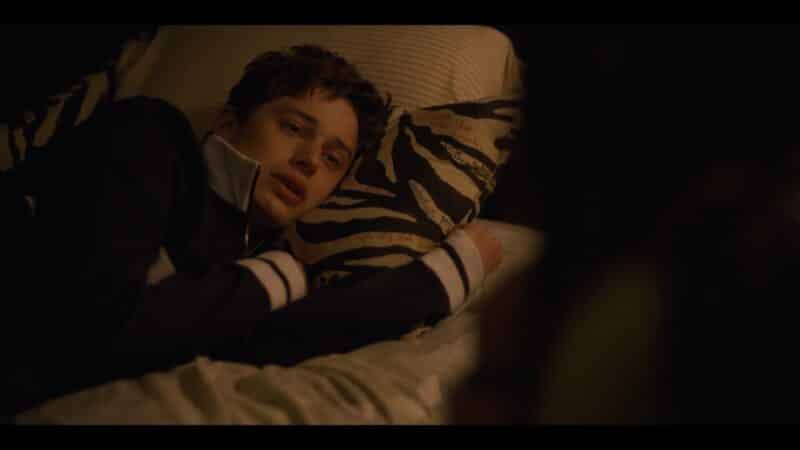
The prime examples being Nathan, Naomi, and their mother, Megan. In many ways, these characters feel like the proverbial Trojan Horses who always get pushed despite the best storylines not including them. Yet, because white familiarity seems necessary to sell a program, there they are in all their mediocrity.
Now, why are we so harsh? Well, it could be Nathan and Naomi being whiny throughout the whole first half of the season and both being difficult characters to love. Nathan, who is coming into his sexuality, has been messing around with his twin sister’s boyfriend behind her back. Then comes out, in grand fashion, during his older sister’s engagement party, and nearly every scene that focuses on him makes him increasingly insufferable.
As for Naomi? Because of Nathan’s actions, you can see she should be seen as the victim and should feel bad for her. However, because she comes off so privileged and barely has qualities that could redeem her, even as she comes into Delilah’s life and befriends her, she doesn’t grow on you. At best, she becomes tolerable in small doses.
Another Example Of Why Dramas Should Consider Being a Half Hour
Easily you could imagine each episode being a full-fledged hour just because of how much it could cover. Naomi, Nathan, and their mother, Megan, are part of a family that’s a full-on hot mess. The twins alone have the issue of sharing a lover before Nathan gains a crush on Chester, then dates Naomi’s friend Arianna, and we’re not even including the drama Megan goes through because of the PTA, her past, or dealing with her oldest daughter getting married.
Then, when it comes to the rest? Chester’s personal life is talked about but rarely does the camera focus on it. So, like the Wizard of Oz, you see a grand performer trying to distract you from the person behind the curtain. Which you can also see with Riley, as you are so pushed to fall for her and Greta being together. Leading to you almost forgetting the individual until she too shows she is flawed.

Following that, Greta’s home life is manageable, but with her mother’s pending return, she is on thin ice as Ana is far more liberal. To top this all off, you have Sam, and his situation with Chester, Arianna who thinks she is funny but mostly is offensive, Delilah who starts off as this annoying social justice warrior but grows on you, and so many others.
All of this is packed into 8 half-hour episodes, and because things aren’t an hour, there is a delicate balance. One that allows Megan, Nathan, Naomi, and Arianna to have their bits but not overwhelm the viewer to the point they’d want to stop watching early on. Rather, they get just enough to move their story forward, just as much as the real hooks of the show.
Inconsistent Use Of Switching To Each Persons’ Perspective
For 2 or 3 episodes, Genera+ion uses the narrative style of focusing on one specific character and showing their version of a day or an event. Sadly, this isn’t consistently done and also isn’t done with each and every character. Riley and Delilah, even Sam, aren’t given a chance to show their world through their eyes, so they are defined by others, and what little time they share with those who are more invested in. This sucks because, as established in the first episode, with the mixing of narratives, you almost get a sense of mystery as you’re tasked to put together all these perspectives into one story.
Yet, similar to Euphoria, even with multiple perspectives, there is a slight sense that what is presented may not 100% be reliable as there is almost a certain sense of tunnel vision. So even with having Chester, Greta, and Nathan introduce the concept, and you get a feel for what happened, there are still areas that remain unfilled. For example, whether or not Riley had feelings for Nathan could be questioned by the first episode.
Diverse Socio-Economic Statuses & The Diversity In General
While we do have your usual rich kids with Nathan and Naomi, maybe Riley as well, there is also Greta, who lives in an apartment, in a more urban area, with her aunt. Then there is Chester, whose home we don’t see much of, but with being raised by a single grandmother, there is the chance he too isn’t a rich kid. On top of that, with so many queer characters, whether gay, bi, or lesbian, both school-aged and adult, in terms of Sam, we get the kind of diversity usually reserved for shows purely focused on LGBT+ experiences.
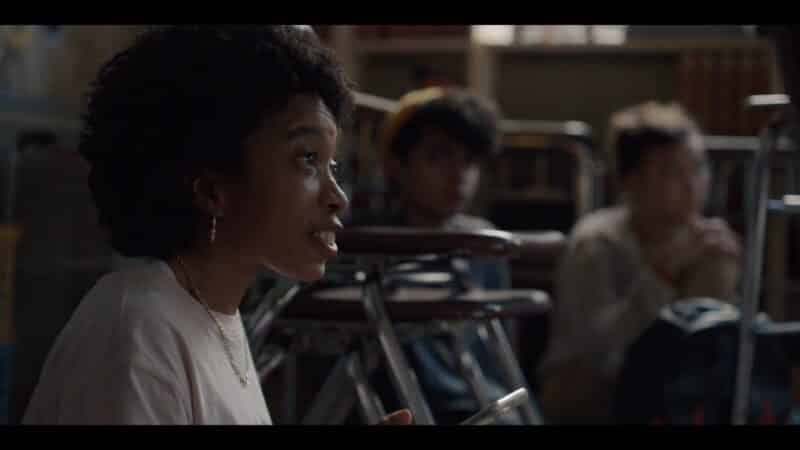
Though, sidestepping the LGBT+ note, there is also Arianna being a Black girl who isn’t written to be likable. This is a step forward to us, for usually people of color are geared towards being the best friend, some sort of mentor, and only on shows and films where their culture is dominant, do we see them as adverse or problematic. So Arianna being someone you can love to hate? That feels notable.
All of this, and more, delivers a far richer experience than expected, and though I know I’m writing this with a sense of nostalgia, in retrospect, while the execution isn’t perfect, the effort is worth noting.
Greta & Riley’s Relationship
One of the core storylines you’ll invest in is the saga of Greta and Riley. Why? Well, if you are someone familiar with storylines featuring two women in a romantic context, you’ll know that far too often things don’t go well. With Greta and Riley, rather than something traumatic happening to one of them, a lot of it is the pains that come with normal teen dramas. Be it butterfly-inducing moments to the struggle of someone like Riley, who hasn’t explored a romantic relationship with girls, has or Greta, who hasn’t really dated anyone at all.
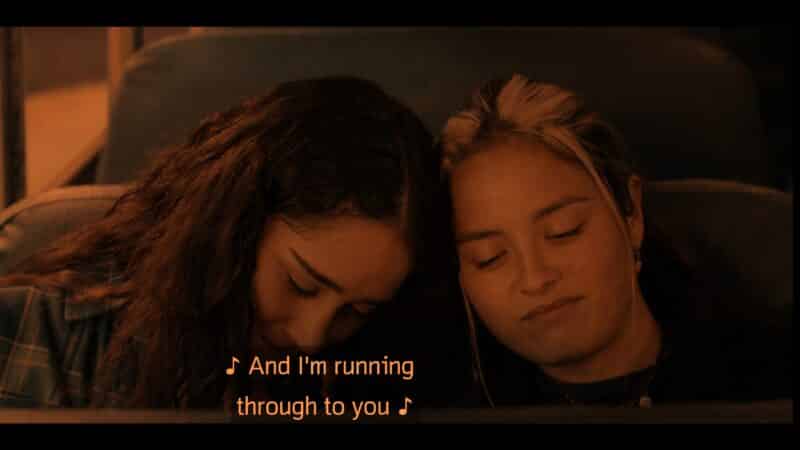
What we get out of them is a lot of the intimacy that is inconsistently given in young adult stories. Meaning, Greta talking about her mom, Riley talking about her anxiety during a potential school shooting incident, and us getting to see them build an emotional bond without the end goal being sex. This isn’t to say that isn’t on their mind, but we’re pushed to remember not everyone is gung-ho for their first time as soon as the opportunity presents itself.
The Sam and Chester Saga
Chester and Riley share one major thing: Neither have been in romantic relationships but are well accustomed to hookup culture. Because of this, affection and love with someone is foreign, and when things get too deep, they can and do push back. With Chester, though, rather than him potentially fall for someone his own age, it is his guidance counselor, Sam.
Because of the age difference, things are immensely complicated. However, in many ways, you can see Sam is what Chester needs. He knows when to play the role of an adult with authority and when to switch it up and be that mentor and protector that Chester may not have. On the flip side, Sam seeing Chester be out and secure in himself allows him to live vicariously since he wasn’t out at Chester’s age.
Yet, as they grow close and signals get mixed, unfortunately, things take a turn, and, like with Greta and Riley, one of the top relationships in the show turn sour.
A Trans Male Actor Playing A Cis Guy
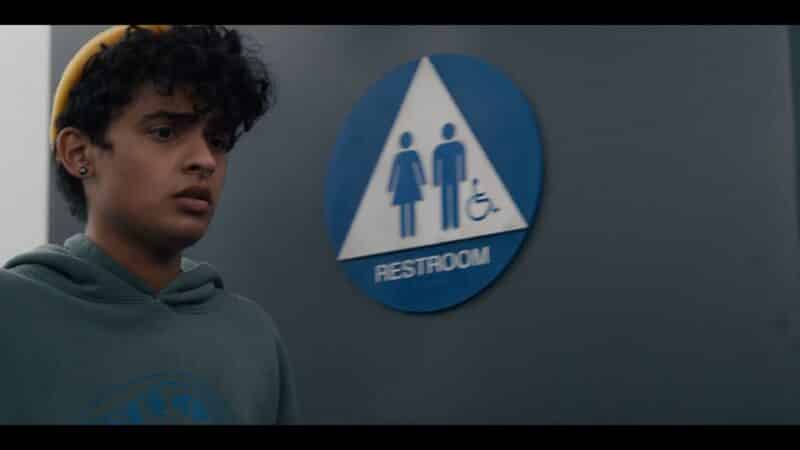
While it isn’t perhaps a big deal to some, we did find having a trans-male actor play a cis male character, in the case of J, was a big thing. At least in terms of having trans actors play cis parts rather than be beholden to playing trans characters exclusively.
Ana!
Of the adults, while we love Sam, Ana is the one who is a scene-stealer. Every scene she has with Greta is hilarious and makes you hope, as TV shows pursue new voices, we’ll get a show with a character like Ana as the lead. Oh, and like J, she is a trans actor getting to play a role that is presented as cis!
Overall
Rating: Positive (Watch This)
In some ways, Genera+ion is a hot mess. It can appear to embellish more often than it needs to, certain characters neither grow on you nor become the type you love to hate but are simply people you wish would get less screen time. Yet, then you have the shared storylines of Greta, Riley, and Chester and what they go through. Combine that with characters like Ana, the potential of J, Delilah, and even annoying ones like Arianna and Genera+ion shows itself as flawed as its characters.
Leading to why the positive label: Genera+ion shines because of its imperfections. The messiness of its characters, who sometimes are over the top, while irritating at times, it gives you what can feel like authentic people. For as much as you have to love Greta and Riley cautiously falling for each other, you have to accept Nathan and Naomi making you want to fast forward. It’s a balance that is by no means perfect but makes it so the world these kids live in doesn’t feel like a small bubble.
TV Shows We’re Covering This Season
Images used for editorial and commentary purposes. All rights remain with their respective copyright holders.


